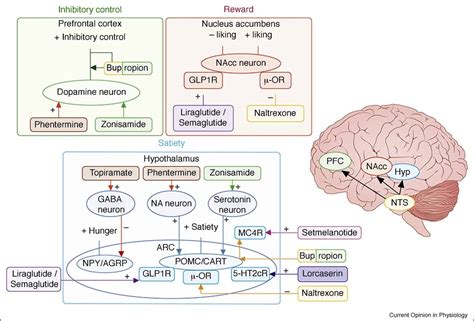The use of phentermine, a prescription medication for weight loss, has been a topic of interest for many individuals seeking to shed pounds and improve their overall health. Phentermine is a stimulant that works by suppressing appetite, increasing feelings of fullness, and boosting energy levels. While phentermine can be an effective weight loss tool for some, it's essential to understand the potential effects of this medication on the body. In this article, we'll delve into the world of phentermine, exploring its benefits, working mechanisms, and potential side effects.
Phentermine has been used for decades as a weight loss aid, and its popularity can be attributed to its ability to help individuals achieve significant weight loss in a relatively short period. However, it's crucial to recognize that phentermine is a prescription medication that should only be used under the guidance of a healthcare professional. The effects of phentermine can vary from person to person, and it's essential to be aware of the potential benefits and risks associated with this medication.
The use of phentermine can have a significant impact on an individual's weight loss journey. By suppressing appetite and increasing feelings of fullness, phentermine can help individuals stick to their diet and exercise plan, leading to significant weight loss. Additionally, phentermine can boost energy levels, making it easier to engage in physical activity and maintain a healthy lifestyle. However, it's essential to remember that phentermine is not a magic pill, and a healthy diet and regular exercise are still necessary for sustainable weight loss.
How Phentermine Works
Phentermine works by affecting the central nervous system, specifically the hypothalamus, which regulates appetite and hunger. When phentermine is taken, it releases chemicals that stimulate the brain, leading to a decrease in appetite and an increase in feelings of fullness. This can result in a reduction in calorie intake, making it easier to lose weight. Additionally, phentermine can increase the production of certain neurotransmitters, such as dopamine and norepinephrine, which can help improve mood and boost energy levels.
Benefits of Phentermine
The benefits of phentermine are numerous, and this medication can be an effective weight loss tool for individuals who have struggled with obesity. Some of the benefits of phentermine include:
* Significant weight loss: Phentermine can help individuals achieve significant weight loss, especially when combined with a healthy diet and regular exercise.
* Improved appetite control: Phentermine can help reduce hunger and increase feelings of fullness, making it easier to stick to a diet plan.
* Boosted energy levels: Phentermine can increase energy levels, making it easier to engage in physical activity and maintain a healthy lifestyle.
* Improved mental health: Phentermine can help improve mood and reduce stress levels, which can be beneficial for individuals who have struggled with emotional eating.
Potential Side Effects of Phentermine
While phentermine can be an effective weight loss tool, it's essential to be aware of the potential side effects associated with this medication. Some common side effects of phentermine include:
* Dry mouth
* Insomnia
* Constipation
* Dizziness
* Headaches
* Nausea and vomiting
* Increased heart rate and blood pressure
Long-Term Effects of Phentermine
The long-term effects of phentermine can be significant, and it's essential to be aware of the potential risks associated with this medication. Some potential long-term effects of phentermine include:
* Dependence and addiction: Phentermine can be habit-forming, and individuals may experience withdrawal symptoms when they stop taking the medication.
* Increased risk of heart problems: Phentermine can increase heart rate and blood pressure, which can increase the risk of heart problems, such as heart attacks and strokes.
* Nutrient deficiencies: Phentermine can suppress appetite, which can lead to inadequate nutrition and nutrient deficiencies.
* Mental health problems: Phentermine can have a negative impact on mental health, particularly in individuals who have a history of depression or anxiety.
Phentermine and Mental Health
The relationship between phentermine and mental health is complex, and it's essential to be aware of the potential risks associated with this medication. Phentermine can have a negative impact on mental health, particularly in individuals who have a history of depression or anxiety. Some potential mental health effects of phentermine include:
* Depression
* Anxiety
* Mood swings
* Irritability
* Insomnia
Phentermine and Pregnancy
The use of phentermine during pregnancy is not recommended, as it can have a negative impact on the developing fetus. Phentermine can increase the risk of birth defects, particularly heart defects, and can also increase the risk of miscarriage. Additionally, phentermine can pass into breast milk, which can be harmful to nursing infants.
Alternatives to Phentermine
For individuals who are looking for alternatives to phentermine, there are several options available. Some alternatives to phentermine include:
* Natural weight loss supplements: There are several natural weight loss supplements available, such as green tea extract, conjugated linoleic acid (CLA), and glucomannan.
* Prescription weight loss medications: There are several prescription weight loss medications available, such as orlistat and liraglutide.
* Lifestyle changes: Making healthy lifestyle changes, such as eating a healthy diet and engaging in regular exercise, can be an effective way to lose weight and improve overall health.
What is phentermine and how does it work?
+
Phentermine is a prescription medication that works by suppressing appetite and increasing feelings of fullness. It is used to help individuals lose weight and improve their overall health.
What are the potential side effects of phentermine?
+
The potential side effects of phentermine include dry mouth, insomnia, constipation, dizziness, headaches, nausea and vomiting, and increased heart rate and blood pressure.
Can I take phentermine while pregnant or breastfeeding?
+
No, it is not recommended to take phentermine while pregnant or breastfeeding. Phentermine can have a negative impact on the developing fetus and can also pass into breast milk, which can be harmful to nursing infants.
What are some alternatives to phentermine?
+
Some alternatives to phentermine include natural weight loss supplements, prescription weight loss medications, and lifestyle changes such as eating a healthy diet and engaging in regular exercise.
How long can I take phentermine?
+
Phentermine is typically prescribed for a short period, usually 12-24 weeks. Taking phentermine for an extended period can increase the risk of dependence and addiction.
In conclusion, phentermine can be an effective weight loss tool for individuals who have struggled with obesity. However, it's essential to be aware of the potential side effects and risks associated with this medication. By understanding how phentermine works and the potential benefits and risks, individuals can make informed decisions about their weight loss journey. We invite you to share your thoughts and experiences with phentermine in the comments below. If you have any questions or concerns, please don't hesitate to reach out. Let's work together to achieve a healthier and happier life.







